Data / Signal Converters
CAN to TTL Communication Module 3.3V~5V
Specifications:
- Operating Voltage: 3.3V to 5V
- CAN Protocol Support: CAN 2.0A and CAN 2.0B
- CAN Bus Speed: Up to 1 Mbps
- TTL Logic Level: 3.3V or 5V selectable
- ESD Protection: ±15kV HBM (Human Body Model)
- Isolation (if applicable): Up to 2500V AC isolation between CAN and TTL sides
- Dimensions: Typically compact, e.g., 40mm x 20mm x 12mm
₹17,818.00
CompareGeneral Overview: The CAN to TTL communication module facilitates the connection between a CAN bus and a microcontroller or other devices that use TTL logic levels. It translates CAN bus signals into TTL level signals (3.3V or 5V), making it possible for low-voltage microcontrollers to participate in CAN communication networks.
Key Features:
- Voltage Compatibility:
- Operating Voltage: Supports both 3.3V and 5V systems, making it versatile for different microcontroller platforms.
- CAN Bus Interface:
- Standard CAN Protocols: Supports standard (11-bit) and extended (29-bit) CAN identifiers.
- Speed: Supports CAN baud rates up to 1 Mbps.
- TTL Interface:
- Logic Levels: Provides TTL level output (3.3V or 5V) compatible with microcontroller UART or serial ports.
- Isolation and Protection:
- Isolation: Some modules offer galvanic isolation between the CAN and TTL sides to protect the microcontroller from high voltages and noise.
- Protection: Built-in ESD protection and short-circuit protection on the CAN side.
- Easy Integration:
- Compact Design: Small form factor for easy integration into existing designs.
- Connectors: Typically uses standard pin headers for easy connection to microcontroller boards.
Applications:
- Automotive Systems: Communication between microcontrollers and CAN bus in vehicles.
- Industrial Automation: Connecting PLCs and other controllers to the CAN network.
- Robotics: Enabling robots to communicate over the CAN bus for coordinated control.
- Home Automation: Integrating smart devices with CAN-based home automation networks.
- Embedded Systems: Allowing microcontrollers to interface with CAN networks in various embedded applications.
This is use as CAN to TTL Communication purpose.


Package Includes:
1 x CAN to TTL Communication Module
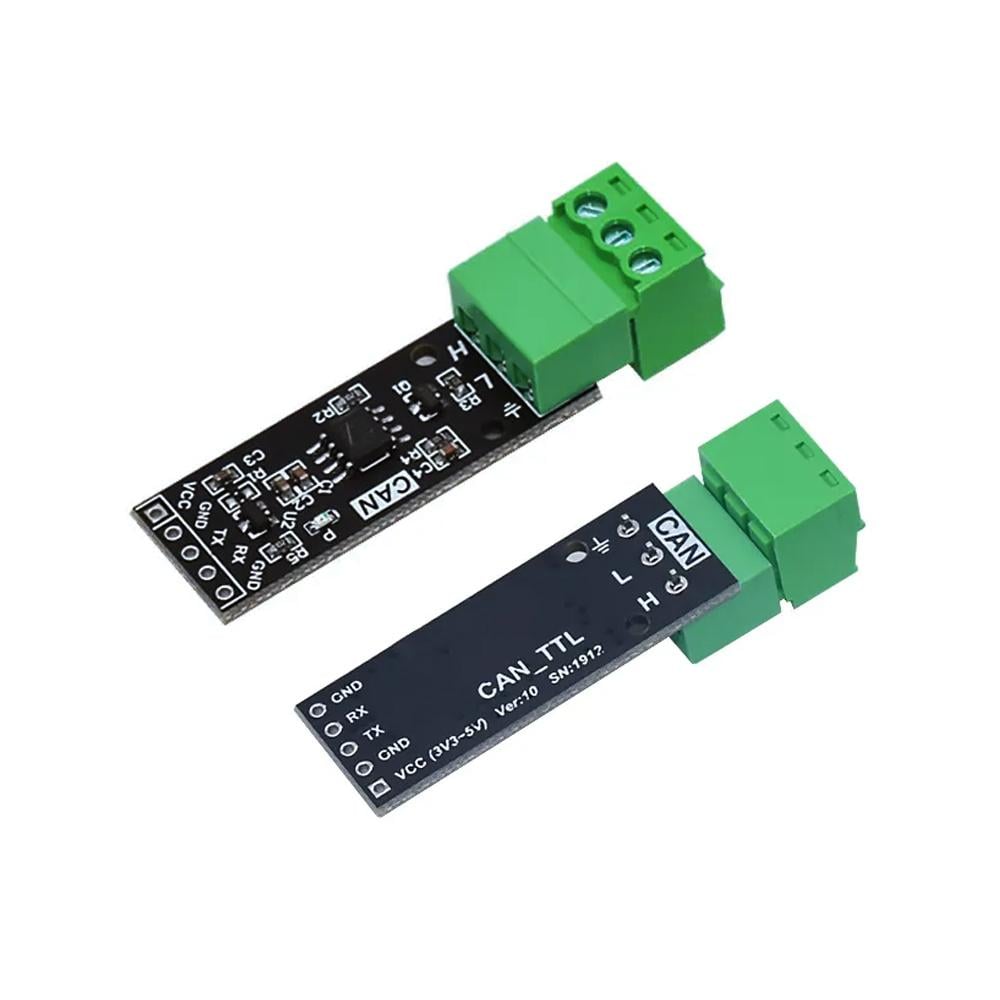
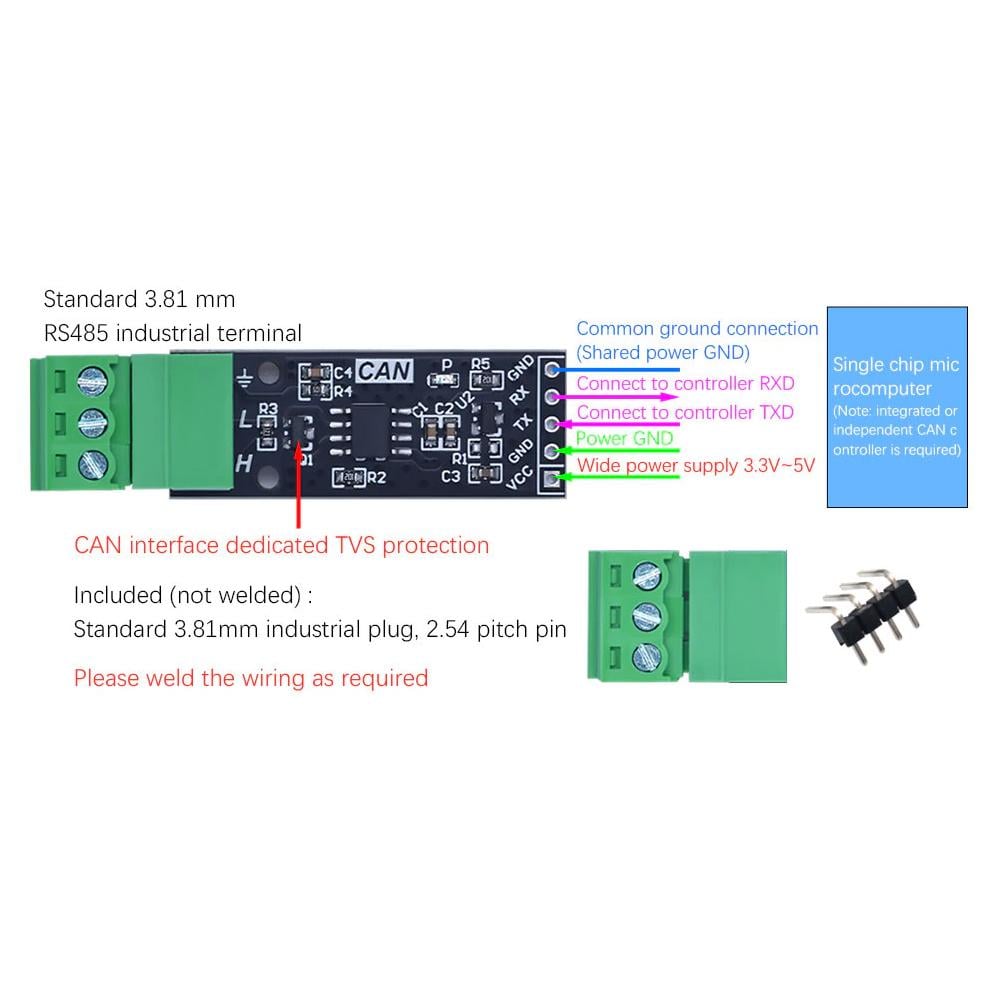

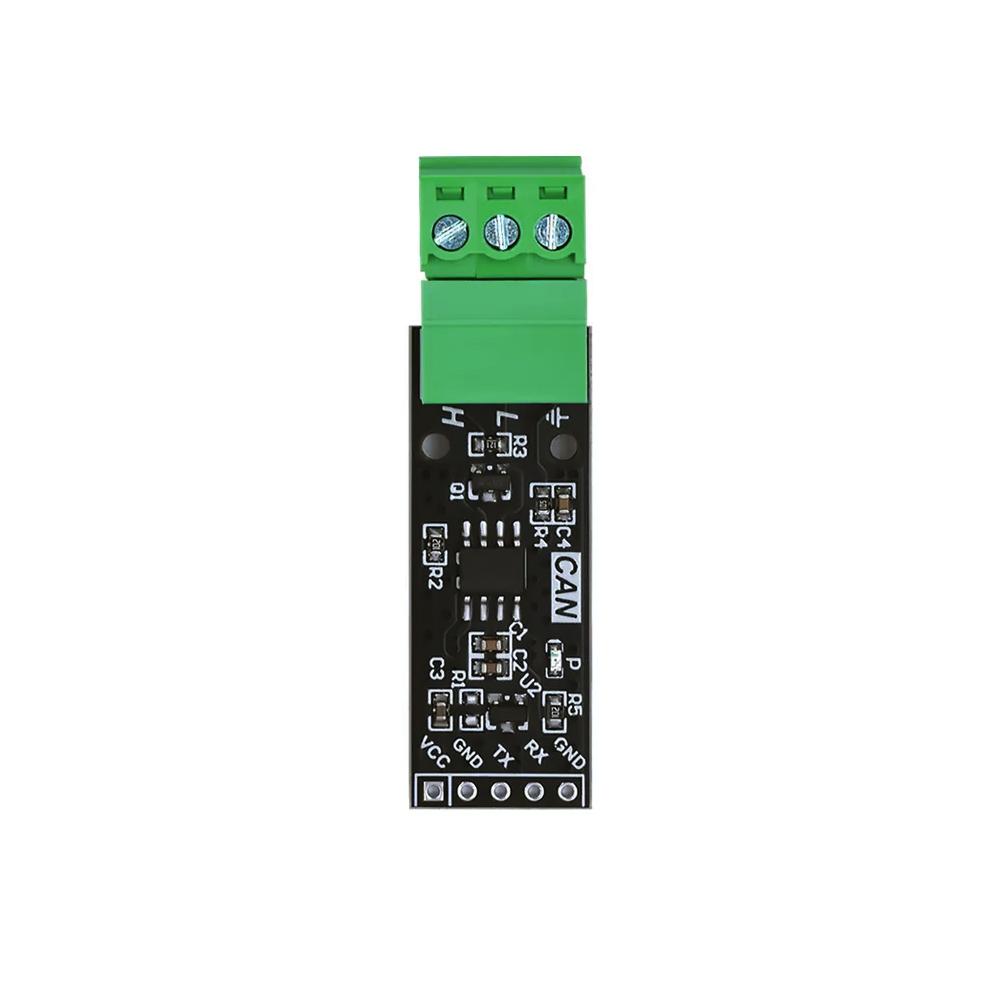
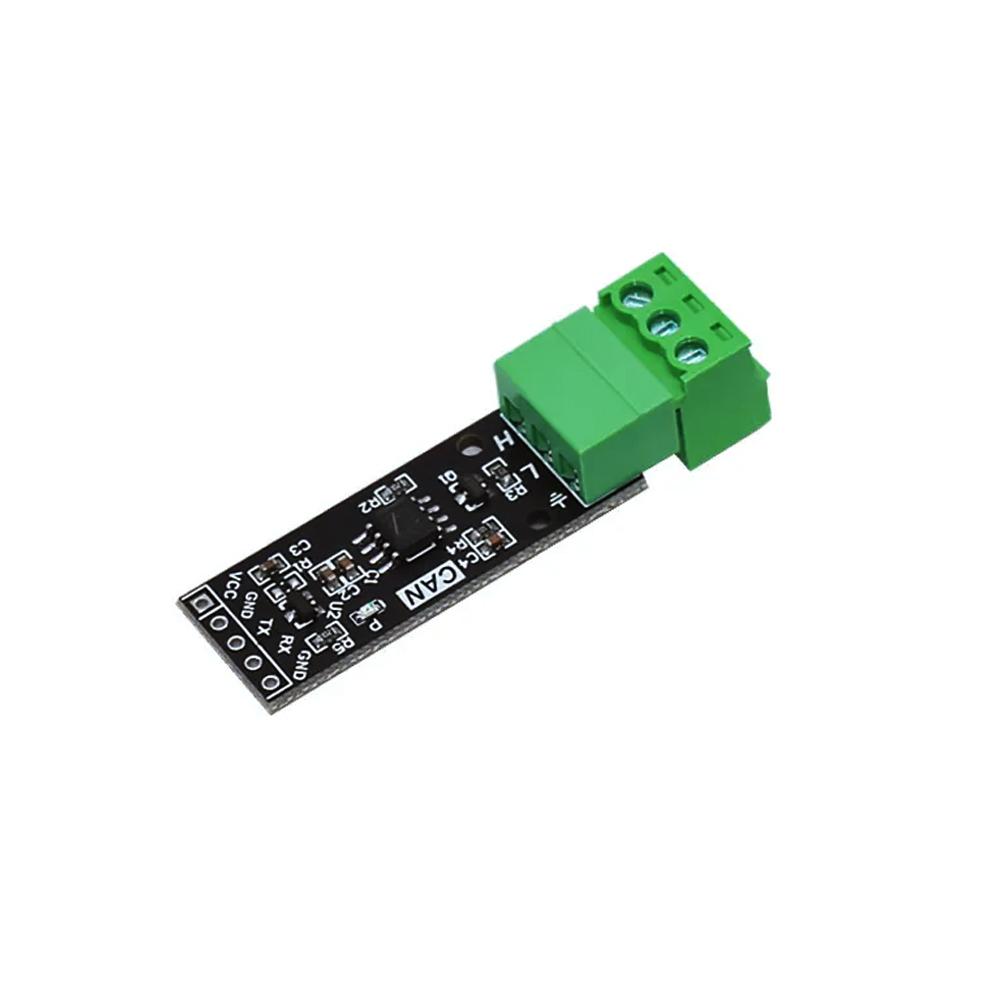
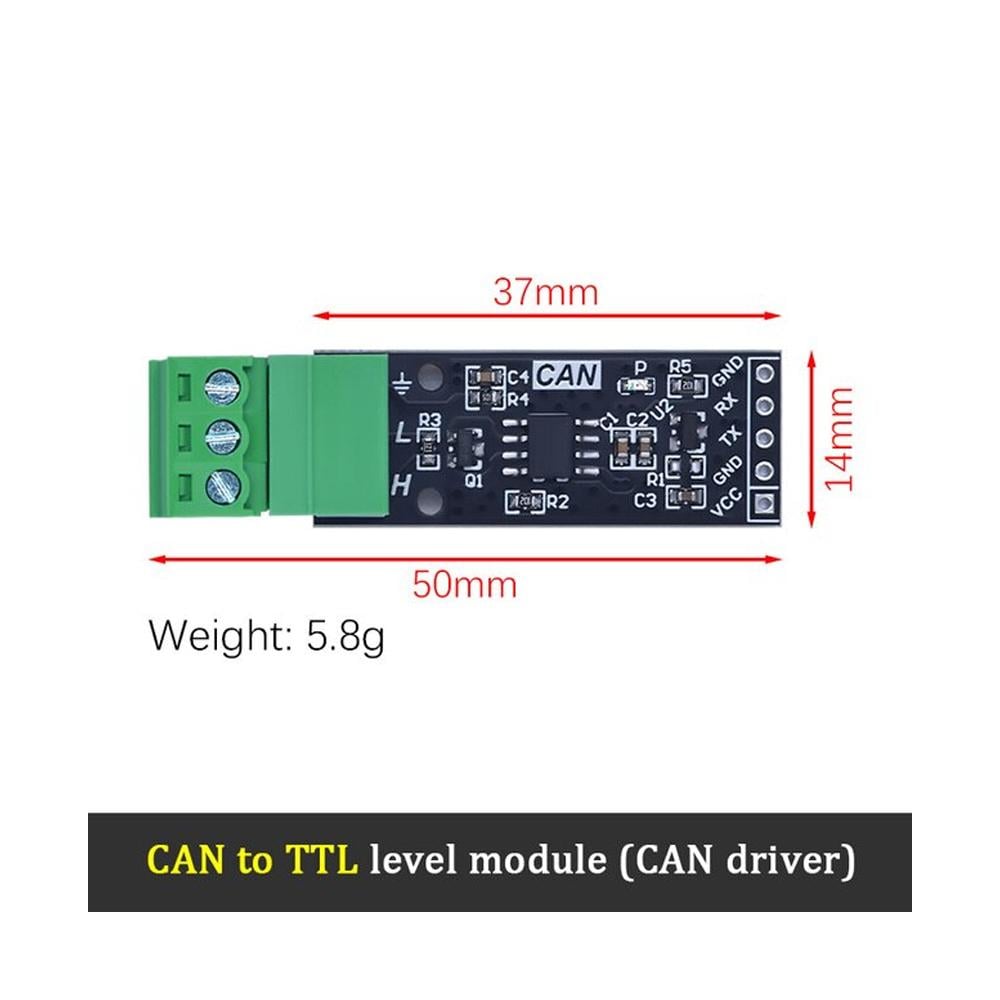
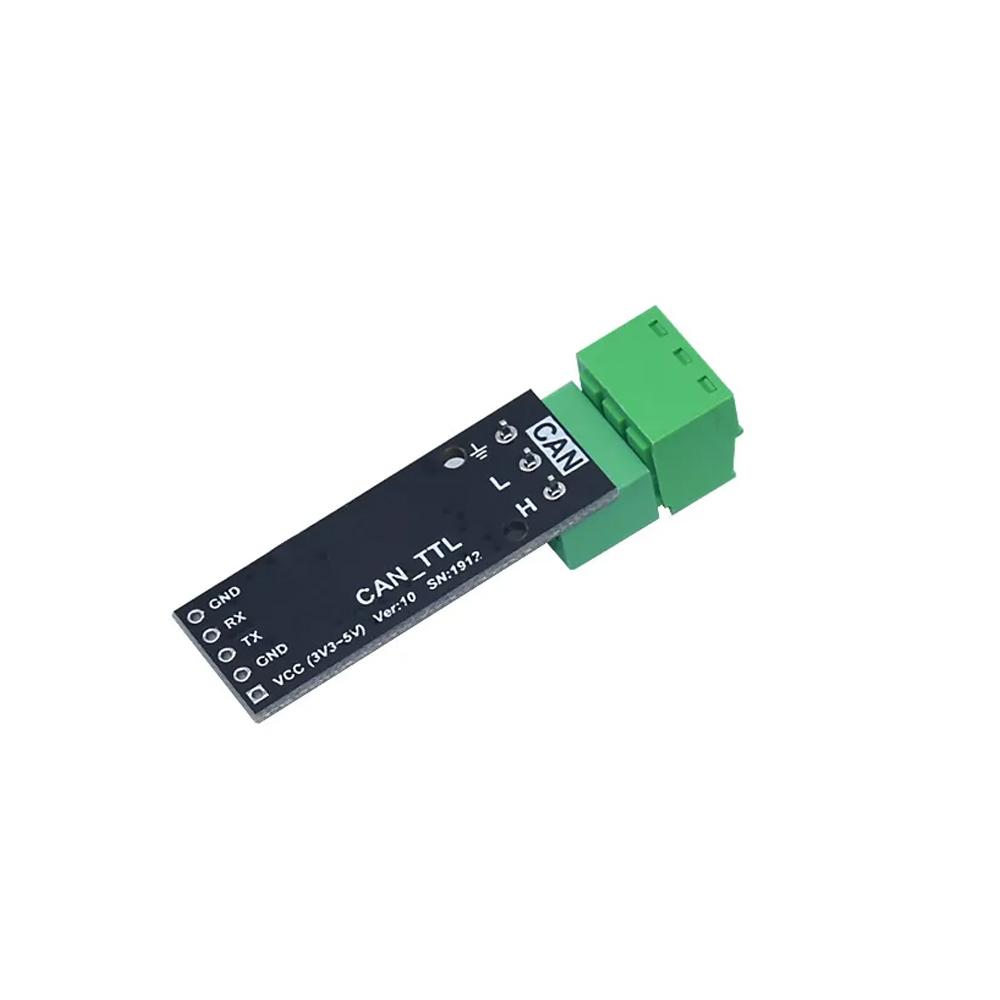
There are no reviews yet.